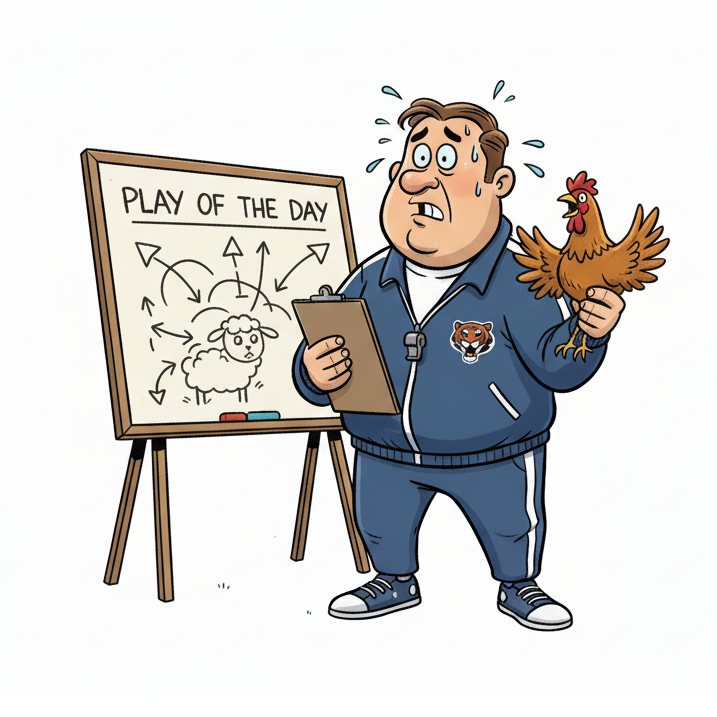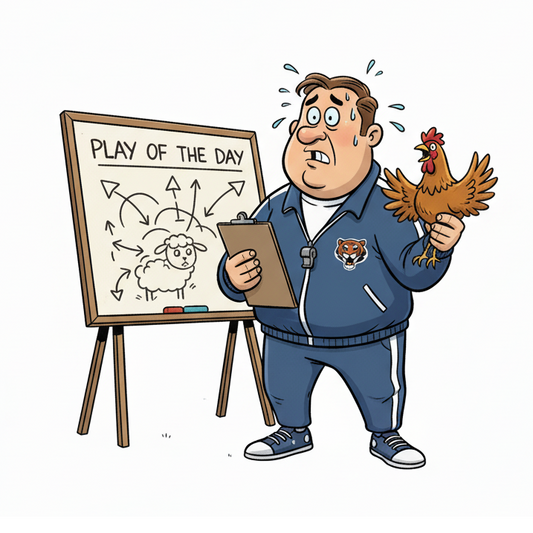
Share
The Impossible Standards on Youth Coaches
Lawrence Cutlip-MasonLet’s Talk About the Impossible Standards We Put on Youth Coaches
Here’s the thing about youth sports: they don’t happen without coaches. Every time your kid hits the ice, the field, or the court, it’s because some parent or community member said, “Sure, I’ll help coach.” And then they gave up their evenings, weekends, and probably a little bit of their sanity to make it all work.
The coaches rarely get paid or compensated and if they do it doesn't usually cover anything other than incidentals, in fact a lot of volunteer coaches have to spend money to coach via background checks, required training and etc.
Somewhere along the line, people started expecting these volunteers to be perfect. We want them to coach like seasoned pros, manage like HR experts, fix issues like a psychiatrist, never make a mistake, always be available, keep every kid safe and every parent perfectly happy. All of these tasks while working full-time jobs, raising their own families and myriad of other tasks they need to do just like you.
That’s just not realistic.
Coaches are human as well, they get tired, forget things, make mistakes and sometimes do something completely off the rails,. They have good days and bad days just like every other human being out there. Often they’re juggling schedules, communications, plays/drills, emotions and more, all while trying to make sure the kids are having fun and learning.
And yet, instead of giving them grace, too many people are quick to criticize. They question playing time, dissect every decision, get mad at their mistakes and sometimes act like a youth game is Game 7 of the Stanley Cup Finals. It’s easy to forget that these are kids playing a game and the adults are giving their "free" time so those kids can play it.
No one is perfect so you can't expect anyone to be perfect regardless of the roll they are fulfilling.
"Making a mistake doesn't define you, what you do afterwards does"
When a coach curses or yells in frustration where the kids can hear, it’s uncomfortable but it’s also human. Emotions can boil over in certain situations, and while it’s not acceptable behavior, it can be an opportunity to model accountability.
When a coach makes a mistake what matters most is what happens next. Does the coach take ownership, apologize, and use it as a teaching moment? Kids learn not just from what adults say, but from how they recover afterwards.
Let’s be honest, everyone swears sometimes.
Cursing is a normal human reaction to stress, frustration, or even excitement. It’s one of the ways our brains release tension and emotion in the moment. In fact, studies have shown that swearing can actually help reduce pain, ease stress, and even build a sense of connection among adults when it’s not directed at anyone. But like anything, it’s about balance.
A single expletive muttered in frustration isn’t the end of the world but turning that frustration toward coaches, players, referees, or parents crosses the line. This will happen due to the emotions involved in sports, the goal isn’t perfection; it’s learning to stay composed and use those emotional moments to model how to recover with accountability and respect.
Support them, forgive them, and spend a little time understanding.
I know great coaches that make mistakes even minor ones and feel awful afterwards just like most normal people.
At the end of the day, youth sports aren’t about perfect coaching. They’re about helping kids grow, learn, and find joy in the game. The best way we can all support that?
Remember that your coaches are just people trying their best, just like the rest of us. They will make mistakes and the best coaches will own those mistakes and turn it into a learning opportunity for all.
Citation:
Hertting, K., Wagnsson, S., & Grahn, K. (2020). Perceptions of Stress of Swedish Volunteer Youth Soccer Coaches. Sports, 8(11), 146. https://doi.org/10.3390/sports8110146
Knight, C. J., & Harwood, C. G. (2009). Exploring parent-related coaching stressors in British tennis: A developmental investigation. International Journal of Sports Science & Coaching, 4(4), 545–565. https://pubmed.ncbi.nlm.nih.gov/19191064/
McLean, K. N., & Mallett, C. J. (2012). What motivates the motivators? An examination of coach motivation in sport. Sport Psychologist, 26(3), 356–367. https://doi.org/10.14264/186753
Manor, N., & Tenenbaum, G. (2025). Reasons for swearing as a form of self-talk in sport and exercise: Development and validation of a new questionnaire. Behavioral Sciences, 15(5): 593. https://www.mdpi.com/2076-328X/15/5/593
“The Science of Swearing” (article) – Psychological Science Observer. This summarises research showing that many uses of swearing are not harmful and can have positive outcomes in emotional regulation and communication.




